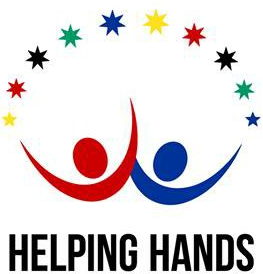Benefits of Helping Hands

Helping Hands provides Reliable, Affordable Stay-At-Home-Care. This allows your loved one to keep their home, and their money while receiving the care they need. This also helps reduce the need for costly and impersonal residential care facilities. This is the choice that most seniors and people with disabilities want to make.
We are an AARP/AgeWell certified agency and offer a wide range of in-home services for adults over 50 years old. These include meal preparation, bathing assistance, medication reminders, light housekeeping, errand running, and much more. This gives our clients peace of mind knowing that they have a caring professional to assist them with their daily tasks.
In addition to the personal and emotional benefits of helping others, there are many physical health and mental wellness benefits that come along with it. Studies show that the act of helping others releases endorphins, which help boost self-esteem and create feelings of euphoria and benevolence. These feelings can be contagious, and encourage other individuals to perform good deeds as well.
Those who need a helping hand often feel alone or helpless. Lending a helping hand to someone can give them a sense of belonging, and can increase the amount of social interaction that a person experiences. This can be particularly beneficial for those with mental illness, and can improve their quality of life.
Children can also benefit from lending a helping hand. When a child cleans dishes or puts away toys, they are learning important skills that can lead to a lifetime of positive behavior and responsibility. They also build self-esteem by feeling that they are contributing to the household. Additionally, sorting and folding laundry is a great way for young children to practice math skills.
A helping hand can also be a way to prevent children from developing hearing loss. Hearing loss can be caused by birth defects, infections or injury, and can be detrimental to a child’s development. Children who have a hearing loss are more likely to experience behavioral problems, such as anxiety and depression. By helping children with a hearing impairment, parents and teachers can make sure that they are able to learn at the same level as their peers.
The phrase “a helping hand” has been in use for more than 300 years. It first appeared in English as “a hand of help” and later evolved into the more common expression today. The term has been used by a wide variety of authors and philosophers. The earliest known usage of the expression is by the poet John Dryden in his 1731 poem, “The Reception of the Letters from Jamestown.” In more recent times, the phrase has been popularized by celebrities and politicians who have used it to promote charity and good works.
